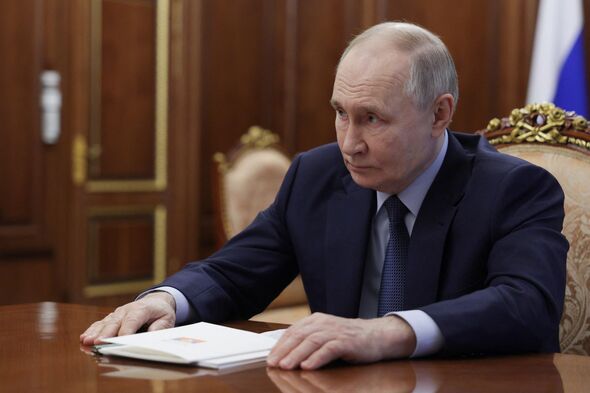Russia’s only allies are finally turning on the country in the wake of economic sanctions from the West, a leaked government report revealed.
The bombshell report was presented at a strategy session led by Prime Minister Mikhail Mishustin and gives a grim insight into the state of the economy.
The Financial Times reports that its analysis admitted that increasingly stringent sanctions are “driving a wedge” between Russia and some of its “nearest trade partners.”
This is something that Vladimir Putin has been accused of hiding as he continues to paint a more positive picture of the war in Ukraine‘s economic impact.
Asian countries have complied with Western sanctions on Russia after being allowed access to other global markets, transport corridors, and supply chains.
However, some countries have been able to circumvent and profit despite the sanctions by taking over their imports and exports. Other countries that do not comply with the sanctions have asked for a commission to cover the risks of violating them.
Central Asian countries were found to be taking advantage of Russia‘s “vulnerability” and trying to “integrate without Russia” in other groups.
The report said these countries must “make a decision on their stance towards Russia” as an increasing number of them sever ties, such as by no longer teaching Russian and adopting more Western educational standards.
Compounding the issue, the Eurasian Economic Union, led by Russia and including Belarus, Armenia, Kazakhstan and Kyrgyzstan, is struggling with “systemic problems”, the report conceded.
The problems include sanctions, different payment systems, and Government regulations in the wake of sanctions.
However, the report did present a solution to Russia’s increasing isolation, claiming a new Eurasia trade bloc would be able to compete with the EU and US.
The report said the so-called “macroregion” would make Russia a player in the “global arena” by connecting it to the global south for raw materials, finance, and transport services.
The regions would be connected by a common “world view [ . . .] where we write rules for the new world [and have] our own sanctions policy”.
It concluded that Russia must “play the long game” to keep its allies in central Asia by appealing to their shared history.
